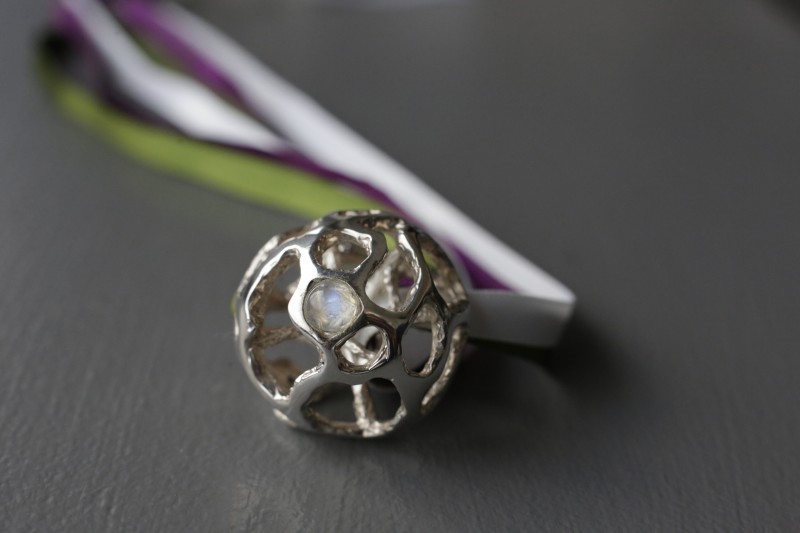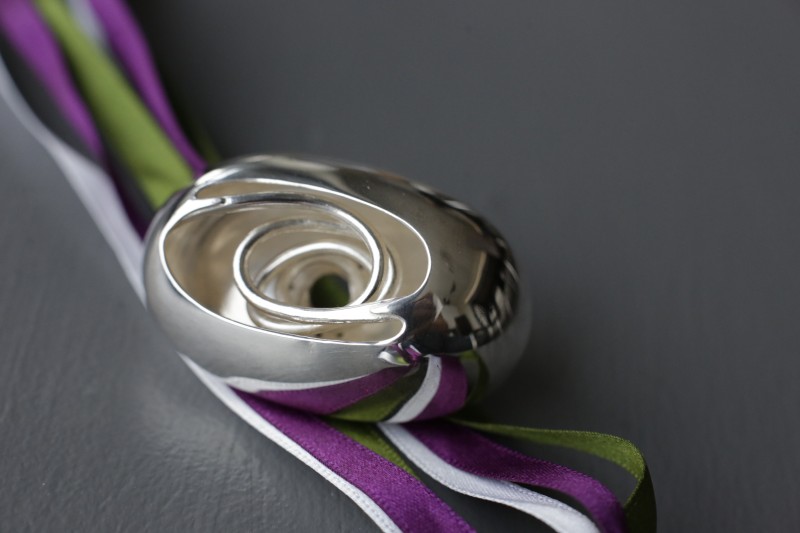By Katy G Pallister
March 8, 2021
Time to read: 8 minutes
Leading women scientists have been chosen by their peers to receive a prestigious award celebrating their achievements. The winners will be honoured at an online celebration on Monday 8 March 2021, the tenth anniversary of the scheme. This will be the fifth Suffrage Science awards for the Engineering and Physical Sciences.
Ten years ago, Professor Dame Amanda Fisher, Director of the MRC London Institute of Medical Sciences (then Clinical Sciences Centre), and Vivienne Parry OBE, science writer and broadcaster, concocted an idea at a café in Dartmouth Park to celebrate the amazing contributions that women scientists have made to their field, sometimes overlooked in favour of their male counterparts. With an endorsement from Dr Helen Pankhurst CBE, women’s rights activist and great-granddaughter of Emmeline Pankhurst, they called the awards scheme Suffrage Science.
On International Woman’s Day in 2011, the inaugural cohort of eleven ‘Suffrage Scientists’ from the life sciences were recognised in a ceremony at the Institute of Contemporary Arts, London. Their awards were hand-crafted items of jewellery created by art students from Central Saint Martins-UAL, who worked with scientists to design pieces inspired by research and by the Suffragette movement. But rather than produce a new set of pieces for the next awards, each holder chose who they would like to pass their award onto, thus generating an extensive ‘family tree’ of incredible scientists and communicators.
As the relay continued, new branches of the Suffrage Science scheme were developed – the ‘Engineering and Physical Sciences’ strand was founded in 2013, and the ‘Maths and Computing’ strand followed in 2016. The Suffrage Science family is now 148 strong, with a further 12 joining on Monday 8th March, 2021, on what will be the tenth anniversary of the scheme.
In that decade, the proportion of women in Core STEM occupations in the UK has nearly doubled, from 13 per cent in November 2012 (WISE, 2013) to 24.5 per cent in September 2020 (WISE, 2021). A similar growth can be seen for female engineering professionals, rising from 5.5 per cent of the total in 2012 to 10.4 per cent in 2020. Yet these headline statistics fall short of the ‘critical mass’ target of 30 percent, defined to be the ‘level at which a minority group of women becomes able to influence real change’ (WISE, 2020). Therefore, it is vital for us to continue to recognise the outstanding work of women already in STEM, and inspire others to enter scientific fields and reach senior leadership roles.
At the fifth handover of the ‘Engineering and Physical Sciences’ awards on March 8th, host Vivienne Parry will draw on the theme of International Women’s Day 2021, #ChoosetoChallenge, and look forward to the next ten years of women changing science with an esteemed panel. Joining the panel is Professor Dame Jocelyn Bell Burnell, a legendary astrophysicist and great advocate of diversity in STEM, who will also give a keynote talk exploring her hopes for the Bell Burnell Graduate Scholarship Fund (Institute of Physics), launched using the money she was awarded from the 2018 Special Breakthrough Prize in Fundamental Physics.
The other panellists are:
Dr Kat Arney (Award-winning science storyteller and host of The Suffrage Science Podcast)
Dr Mercy Badu (Co-founder of Women in STEM (WiSTEM), Ghana)
Professor Melinda Duer (Engineering and Physical Sciences Awardee 2019)
Suffrage Science pioneer Professor Fisher said:
“We dreamed up the awards scheme to celebrate the contribution that women have made to science, which often gets overlooked. This is as important now as it was ten years ago. This year’s awardees join a community of over 148 women scientists. I’m thrilled that since 2011, the awards have travelled from the UK, across Europe to the USA, Hong Kong, Iran and to Ghana, illustrating the international nature of science and engineering, and the global effort to improve the representation of women in STEM.”
The 2021 Engineering and Physical Sciences award winners are:
| Dr Gaitee Hussain | European Space Agency, The Netherlands |
| Professor Syma Khalid | University of Southampton, UK |
| Professor Natalie Stingelin | Georgia Institute of Technology, USA |
| Professor Ina van Berckelaer-Onnes | Leiden University, The Netherlands |
| Dr Hayaatun Sillem CBE | Royal Academy of Engineering, UK |
| Professor Ruth Cameron | University of Cambridge, UK |
| Dr Elin Röös | Swedish University of Agricultural Sciences, Sweden |
| Dr Maria Dolores (Lola) Martín Bermudo | Centro Andaluz de Biología del Desarrollo, Spain |
| Dr Samaya Nissanke | University of Amsterdam and Nikhef, The Netherlands |
| Professor Gerjo van Osch | Erasmus University Medical Center, The Netherlands |
| Professor Valérie Orsat | McGill University, Canada |
| Dr Mary Anti Chama | University of Ghana, Ghana |
The current Engineering and Physical Sciences award holders (2019) are:
| Professor Moira Jardine | University of St. Andrews, UK |
| Dr Sarah Harris | University of Leeds, UK |
| Professor Roisin Owens | University of Cambridge, UK |
| Professor Tiny De Keuster | Ghent University, Belgium |
| Professor Karen Holford CBE | Cardiff University, UK |
| Professor Serena Best CBE | University of Cambridge, UK |
| Dr Tara Garnett | University of Oxford, UK |
| Dr Isabel Palacios | Queen Mary University of London, UK |
| Professor Amina Helmi | University of Groningen, The Netherlands |
| Professor Sue Kimber | University of Manchester, UK |
| Professor Marzieh Moosavi-Nasab | Shiraz University, Iran |
| Professor Melinda Duer | University of Cambridge, UK |
Each previous holder chose to whom they wanted to pass their ‘heirloom’ piece of jewellery. Below are reasons behind two of the nominations:
Dr Sarah Harris, University of Leeds, who has nominated Professor Syma Khalid, University of Southampton, said:
“I have chosen Syma because her computer simulations are massive, they always aspire towards biological complexity, and are frankly jaw-droppingly awesome to watch. It is in Syma’s nature to put the needs of our community before her own, and she is compelled to emphasise the contribution made by her students and colleagues to her many successful projects. I’m therefore very grateful to Sarah Staniland (2017 Awardee) for giving me this chance to say ‘Syma matey – today it’s just about you!’”
Professor Karen Holford CBE, Cardiff University, who has nominated Dr Hayaatun Sillem CBE, Chief Executive of the Royal Academy of Engineering, said:
“Dr Hayaatun Sillem is a truly inspiring leader who is changing the face of engineering in the UK. She is unapologetically passionate about using her voice to champion others, especially those from underrepresented groups in society. She is the first female Chief Executive of the Royal Academy of Engineering and is bringing her passion for diversity and inclusion to address positively the diversity deficit which exists in the profession.”
To further commemorate the tenth anniversary of Suffrage Science, the MRC LMS have launched ‘The Suffrage Science Podcast: How women are changing science’, hosted by Dr Kat Arney and produced by First Create The Media with audio production by Georgia Mills. In the series, released on Monday 8th March 2021, we will explore the journeys of women in science, reflecting on progress we’ve made and the challenges still to be addressed, through conversations with an incredible group of women leaders who have all received a Suffrage Science award over the past ten years.
Episodes will be available on Apple Podcasts, Amazon, Google, Spotify, or wherever you get your podcasts.
END
###
If you would like further information about the awards please contact Katy Pallister, Engagement and Events Officer at the MRC London Institute of Medical Sciences.
Contact
Name: Katy Pallister
Mobile: 07395 369733
References:
WISE, 2013 – UK Statistics 2012, https://wisecampaign.scdn3.secure.raxcdn.com/wp-content/uploads/2018/04/WISE_UK_Statistics_2012.pdf
WISE, 2020 – 2019 Workforce Statistics – One million women in STEM in the UK, https://www.wisecampaign.org.uk/statistics/2019-workforce-statistics-one-million-women-in-stem-in-the-uk/
WISE, 2021 – Updated workforce statistics to September 2020, https://www.wisecampaign.org.uk/statistics/updated-workforce-statistics-to-september-2020/
The Suffrage Science awards scheme, founded by the MRC London Institute of Medical Sciences (LMS), celebrates women in science for their outstanding scientific research, communication work, and support of women in STEM. The awards scheme is divided into three branches; ‘life sciences’ – founded in 2011, ‘engineering and physical sciences’- founded in 2013, and ‘maths and computing’ – founded in 2016. Each branch has two associated pieces of jewellery which are passed on from one awardee to the next. The recipient of the jewellery is chosen by the current holder of the award. This generates an extensive ‘family tree’ of incredible scientists and communicators. The unique pieces of jewellery were commissioned from students of the art and design college, Central Saint Martins-UAL, who worked with scientists to create pieces inspired by research and the Suffragette movement, from which the scheme takes its name.
https://www.suffragescience.org/
MRC London Institute of Medical Sciences is an Institute of the Medical Research Council, part of UK Research and Innovation. It is a vibrant research environment in which scientists and clinicians collaborate to advance the understanding of biology and its application to medicine. LMS research programs are focused in three sections: Epigenetics, Genes and Metabolism, and Quantitative Biology.
About the jewellery

Pendant by Ying Lola Lou
“I used cells and tissue scaffolds as icons to represent the twelve individual winners, and the Medical Research Council. Bringing together women through the Suffrage Science scheme has created a network that contributes to mankind. Embedded in the pendant are round and oval shaped stones of white moonstone, purple amethyst and green peridot minerals – the colours of the Suffragettes.”

Brooch by Diana Dong
“The strength, belief and courage that exists deep within each woman’s heart, is the inspiration for the brooch. The display device is designed to incorporate the magnetic levitation principle. Magnets will be installed in the base of the display device and the bottom of the brooch, which will make the brooch suspend in mid-air.”